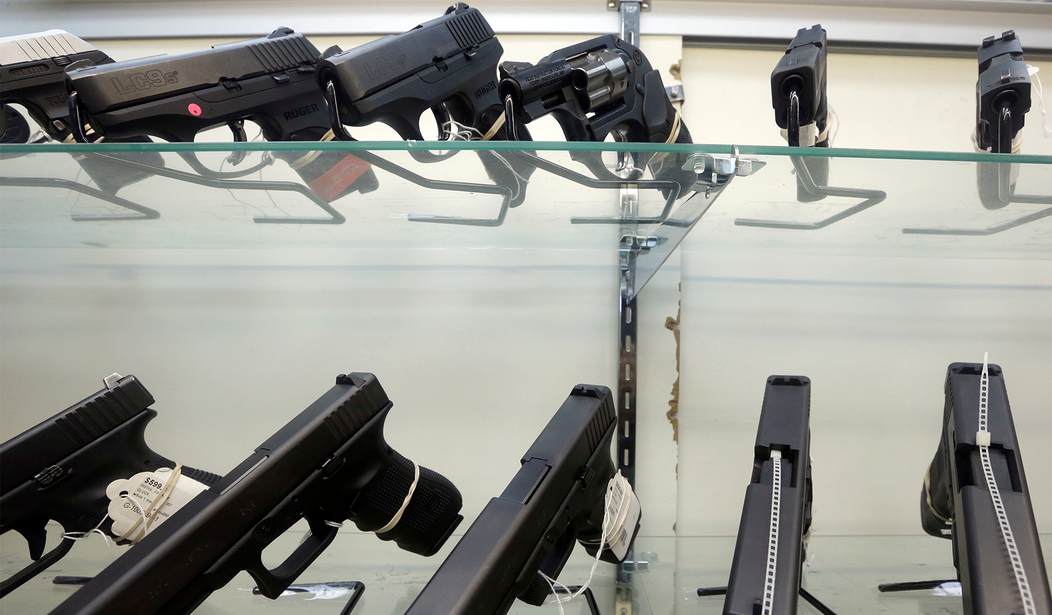If we're going to solve violent crime--not just "gun crime" but all violent crime--we need to try and understand where it comes from and why it happens. The gun rights trope of guns not causing crime is absolutely true, and any objective understanding of the issue should reveal that.
It doesn't make people dismiss gun control, necessarily, but it does at least make it clear that violent crime isn't the result of guns simply existing.
Over at The Atlantic, they apparently decided it was time to wonder why so-called gun violence happens more in some places than others, which is probably a good thing. In particular, they look at Chicago, and it's worth remembering that most of Chicago doesn't have a violence issue. It's just that the neighborhoods where there is a problem have a massive one, yet the city is covered by the exact same gun control laws. There are no restrictions that apply to one neighborhood and not another.
So someone trying to look at it is a good thing. Unfortunately, this is still The Atlantic, so you kind of know at least some of what's coming.
My name’s Jerusalem Demsas. I’m a staff writer at the Atlantic, and this is Good on Paper, a policy show that questions what we really know about popular narratives. My guest today is the economist Jens Ludwig, from the University of Chicago, who has spent his career studying the economics of crime. He has a book coming out in a few months called Unforgiving Places: The Unexpected Origins of Gun Violence.
Jens and I talk about the classic explanations for why gun violence happens in some places and not others. He pushes back against the classic right-wing explanation that the problem is bad people and the classic left-wing argument that solving the problem of gun violence requires ending mass social inequalities first.
Well, that's a horrible oversimplification of what most on the right argue. It's not wrong, necessarily, and I sincerely doubt we're going to see anything that really disputes this anytime soon. What's interesting, though, is how Demsas ignores the fact that the left-wing argument is generally just enacting gun control, not anything about social inequalities.
They might talk about mass social inequalities, but their every argument about answers to violent crime revolve around gun control and nothing else.
If we're starting off with such misinformation, you have to wonder what's coming now.
Demsas: Jens, you have a book coming out in April called Unforgiving Places. What’s it about? What are you arguing?
Ludwig: The book basically makes two arguments. One argument is that we’re despairing about the problem of gun violence because we’ve thought about it as just all being about gun control, and I think that’s not true. I think the problem of gun violence in America is partly about guns, and it’s partly about violent behavior. And if we can’t do anything about the guns, we can at least try and do something about the violent behavior. And the experiences of L.A. and New York over the last 30 years show us that there’s real progress that you can make there.
And then I think the other core argument of the book is that violent behavior is not what we’ve thought. I think most people have thought of violent behavior in America as being about thoughtful, deliberate action that leads you to focus on incentives, like bigger sticks or more enticing carrots. And in fact, I think most shootings in America are instead fast-thinking, reactive—it stems from arguments. And that leads us away from relying exclusively on incentives and towards a very different type of policy that we just haven’t been talking about or thinking about.
Now, this is interesting, and Ludwig gets into how crime influences population, which can amplify the issues a bit--as good people move out or refuse to move in, it means the bad actors are a higher percentage of those remaining, making the problem more of an issue on a per capita basis--but I'm not entirely sure I can agree that this is just a case of shooting stemming from arguments, at least as they're implied.
Sure, there are some of these cases, as there always have been.
However, what I've seen when I looked at many of these homicides, the arguments that lead to the shootings are days or weeks earlier. This isn't a case of someone getting mad and flying off the handle and doing something they'll later regret. Instead, it's people getting mad and staying mad, believing they've been disrespected and somehow need to react violently in order to maintain some kind of reputation.
It's interesting that Ludwig, who notes that studies aren't really showing gun control having much impact at all, later goes on to clearly suggest that the issue with gun control not working is that the feds haven't regulated nearly enough.
That said, he does point out how New York and L.A. were able to solve their violent crime issues in the past without new federal gun laws. I'm just not sure I can accept the rest of what he says because while he makes the case that rationality isn't involved in the decision-making that leads to shootings, the fact that most of these happen days or weeks after what we can term as the inciting incident suggests that it's a prolonged case of irrationality, which Ludwig acts as if they're all instant reactions.
Still, Ludwig doesn't say the only answer is gun control, which is a good thing, and it at least provides some point worthy of discussion going forward. I'm a big fan of looking at how to prevent violent crime as a whole, so any movement that's actually geared toward that is a win in my book, even if I think he's wrong.








Join the conversation as a VIP Member